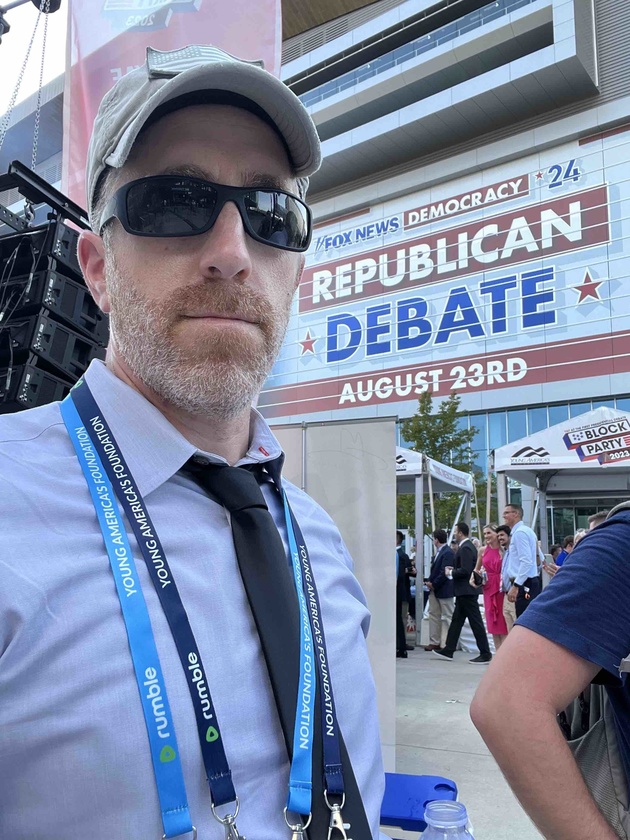The first thing I should note is that I had an incredible time in Milwaukee. I have always loved the city, and even considered moving there once. It is neoclassical, Midwestern, cosmopolitan, and earthy at the same time. I went to a Brewers game, swam at Bradford Beach, drank a Leinenkugels shandy, and rode a scooter everywhere.
The debate itself: I found it more exciting than expected, but still sort of boring. It was nice to hear candidates talking about conservative policies, but I didn't hear much that blew my mind, though I was impressed with Gov. Doug Burgum's answer on abortion (which I happen to agree with, though it needed something more).
Trump is still the frontrunner, and remains irreplaceable -- not just because of the indictments, although they have given conservatives reason to rally around him, but also because he has an instinct for identifying the most important issues and for framing them in a powerful way. Whether he can beat Biden is another matter.
I would add this: Democrats trolled the debate with an airplane towing a sign that described the 2024 Republican primary as a race for the "extreme MAGA base." It was the first time I had seen a major American political party attack the voters on the other side, not just the politicians. Scary stuff, in the context of what's going on.

This week’s portion launches the great story of Abraham, who is told to leave everything of his life behind — except his immediate family — and to leave for “the Land that I shall show you.”
There’s something interesting in the fact that Abraham is told to leave his father’s house, as if breaking away from his father’s life — but his father, in fact, began the journey, moving from Ur to Haran (in last week’s portion). His father set a positive example — why should Abraham leave him?
Some obvious answers suggest themselves — adulthood, needing to make one’s own choices, his father not going far enough, etc.
But I think there is another answer. Abraham (known for the moment as Abram) needs to establish his own household. This is not just about making one’s own choice, but really about choosing one’s own starting point. It’s starting over.
Sometimes we start over in fundamental ways even if much that surrounds us remains the same. Sometimes the journey we have to ...
The story of Noah is familiar; the details, less so.
Noah is often seen as an ambivalent figure. He was righteous -- but only for his generation. What was his deficiency?
One answer suggests itself: knowing that the world was about to be flooded, he built an Ark for the animals and for his own family -- but did not try to save anyone else or to convince them to repent and change their ways (the prophet Jonah, later, would share that reluctance).
Abraham, later, would set himself apart by arguing with God -- with the Lord Himself! -- against the destruction of Sodom and Gomorrah, saying that they should be saved if there were enough righteous people to be found (there were not).
Still, Noah was good enough -- and sometimes, that really is sufficient to save the world. We don't need heroes every time -- just ordinary decency.
Hi all -- as I noted last month, I'm going to be closing down my Locals page, at least for tips and subscriptions -- I may keep the page up and the posts as well, but I'm no longer going to be accepting any kind of payment.
Look for cancelation in the very near future. Thank you for your support!












